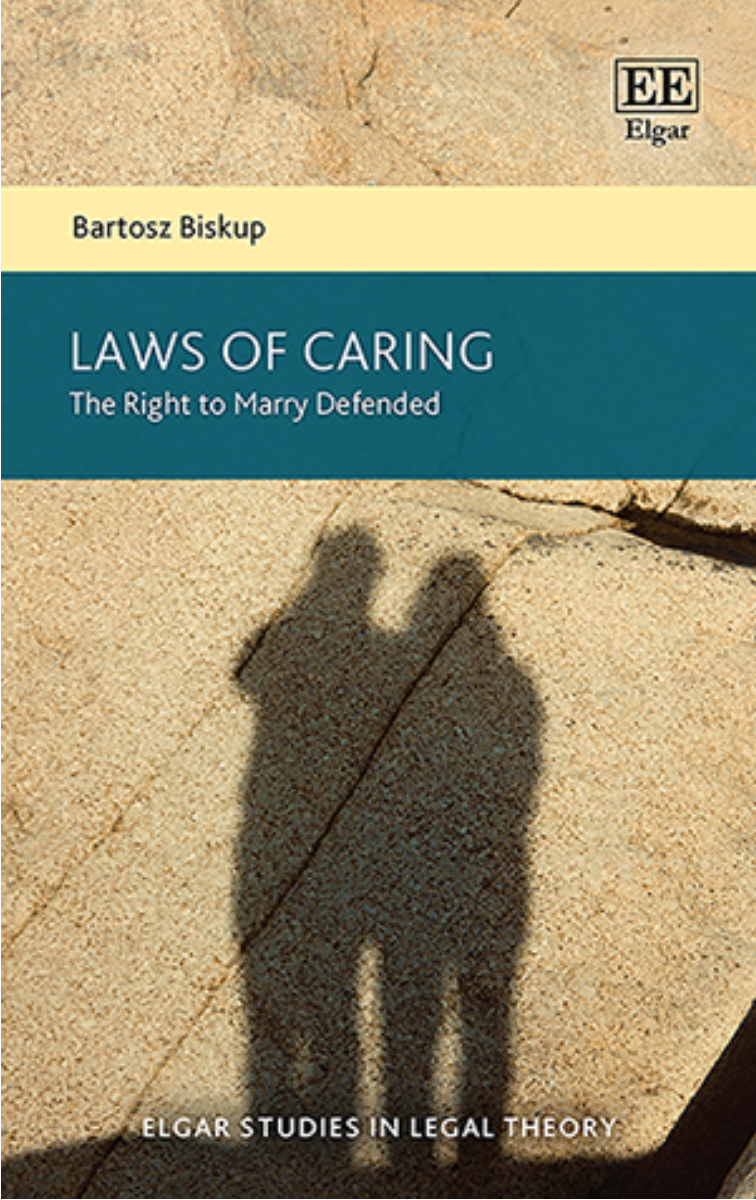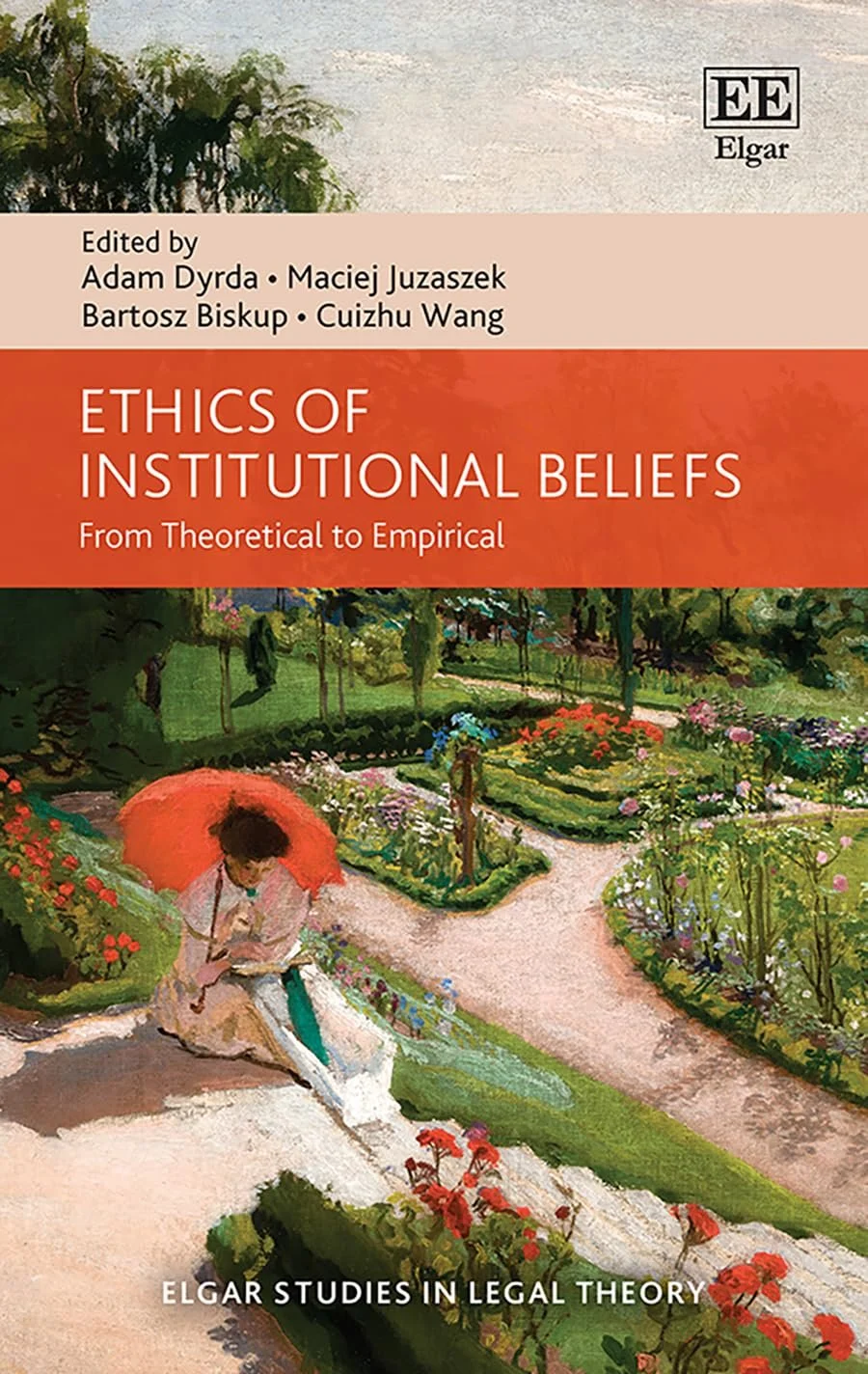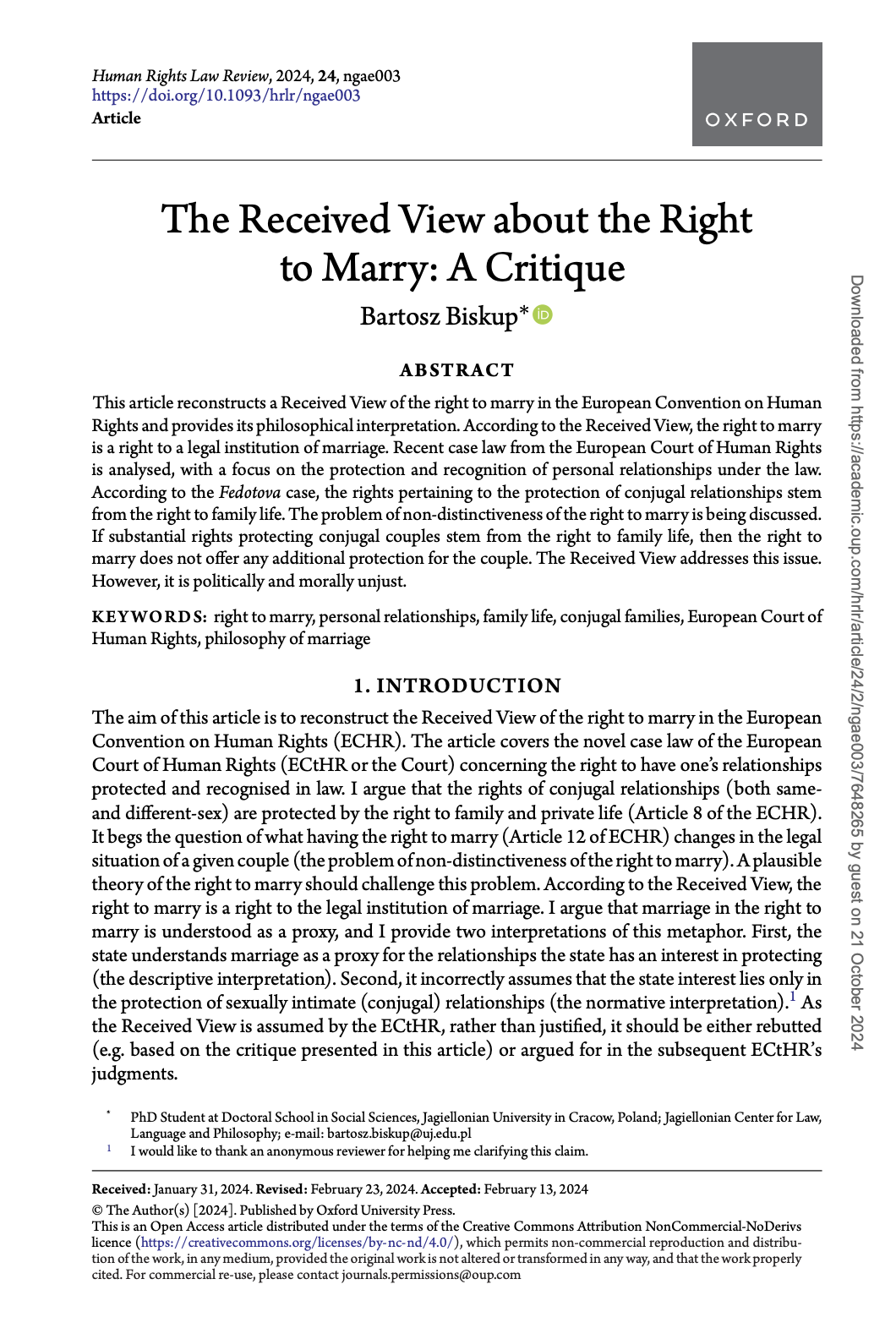Publications
Book
Photo by Stanisław Wielopolski(March 2026) Laws of Caring. The Right to Marry Defended, Edward Elgar
-
In this provocative book, Bartosz Biskup advocates for a reform of the right to marry, arguing that this right should extend beyond romantic or sexual couples to include any relationship that provides care and support.
Through philosophical and legal analysis of the European Convention on Human Rights, Biskup concludes that the right to marry is currently an empty status that neglects to explain why marriage deserves special protection. He adopts an ameliorative legal philosophy to illustrate how relationships should receive legal recognition based on care and vulnerability rather than sexual intimacy. Biskup''s research encompasses various common situations including adult siblings sharing a home, friends who become primary caregivers and chosen families. Rather than abolishing marriage, Biskup outlines how the institution of marriage can be improved to create a more just family law system while still upholding the human right to marry.
Laws of Caring provides a novel ontological framework for understanding legal kinds and institutional change through social amendment, making it a valuable resource for scholars and students of legal philosophy, family law and social ontology. It is also highly relevant to human rights practitioners in NGOs and international organizations who focus on family diversity, especially the rights of LGBTQ+ and non-conjugal families.
Papers
(Forthcoming)‘On Legal Artefacts’, Journal of Social Ontology
-
In this paper, I argue that conventionalised social kinds, including legal institutions like marriage, operate through collective recognition rather than functional realization (the Functionalist View). I propose a Constructivist View where legal kinds are constructed by relevant communities through collective recognition. The central concept I introduce is Social Amendment: the process by which relevant communities collectively recognize new entities as belonging to existing social kinds, thereby expanding kind membership without functional constraints. I demonstrate that social kinds exist on a continuum of conventionalisation, with properties held together by causal mechanisms (real social kinds) or fiat (conventionalised social kinds). Legal artefacts exemplify strictly conventionalised kinds where collective recognition determines the membership of the kind. Using marriage as a case study, I show how this framework resolves the tension between functional and recognition-based approaches to legal kinds. The Constructivist View bridges the artefact theory of law with social ontology, revealing their convergence through conventionalised social kinds. This approach aligns with token-first theories of kind construction and demonstrates how legal institutions evolve through collective recognition rather than functional adaptation, while showing compatibility with existing socio-ontological accounts.
(2025)‘Ethics of Institutional Beliefs: Ethics of What’ (with: Adam Dyrda) [free access]
-
What is the ethics of belief in the context of social and legal institutions about? In this chapter, after briefly introducing the ethics of belief (a part of traditional, as opposed to naturalized, epistemology), we discuss the object of such ethics: beliefs and belief-related attitudes. We recognize that W.K. Clifford’s idea of the ethics of belief is related to society’s basic self-understanding (as it facilitates public reasoning). We note that while explaining grounds for the ethics of belief, Clifford makes socio-ontological claims (“tribal self”). Then we focus on the ethics of the beliefs and attitudes that ground social and legal institutions (as these foundational institutional beliefs and attitudes, including mutual trust, are referred to by social ontologists). We briefly investigate related themes in works by J. Searle, R. Tuomela, and D. Lewis and his followers, although evidence is surprisingly scarce. At the end, we raise four problems that should be analysed further: the detachment problem, the anatomism problem, the question of evaluation, and the theory-ladeness of evaluated belief structures.
(2024)‘Received View about the Right to Marry: A Critique’, Human Rights Law Review [open access]
-
This article reconstructs a Received View of the right to marry in the European Convention on Human Rights and provides its philosophical interpretation. According to the Received View, the right to marry is a right to a legal institution of marriage. Recent case law from the European Court of Human Rights is analysed, with a focus on the protection and recognition of personal relationships under the law. According to the Fedotova case, the rights pertaining to the protection of conjugal relationships stem from the right to family life. The problem of non-distinctiveness of the right to marry is being discussed. If substantial rights protecting conjugal couples stem from the right to family life, then the right to marry does not offer any additional protection for the couple. The Received View addresses this issue. However, it is politically and morally unjust.
(2024) ‘Two Senses of Law as an Artefact’, Monash University Law Review [open access]
-
This paper aims to analyse the claims that law is an artefact. There are two different concepts of the artefact in legal-philosophical literature. In some contexts, the concept of an artefact implies that a law is a social kind rather than something similar to a natural kind. Philosophers use the concepts of essentialism, fallibilism, and externalism to juxtapose law with natural kinds. However, in different contexts, the use of 'artefact' seems to presuppose some ontologically robust views from the specific field as the philosophy of technical artefacts. This latter use, however, assumes certain ontological presuppositions concerning the examination of law; specifically, the intention of the author and the purposive character of law. I argue that between the thesis that law is an artefact understood as a social kind or social construct and the thesis that law is similar to technical artefacts, there is a conceptual shift. I claim that this shift is unjustified.
Edited Volume
(2025) Ethics of Institutional Beliefs: From Theoretical to Empirical, Edward Elgar (with A. Dyrda, M. Juzaszek, and C. Wang)
-
This incisive book reflects on the ethics of institutional belief, exploring the philosophy of social and legal institutions. Expert authors examine the deeds, beliefs, and collective attitudes of these institutions, in light of distinct ethical and epistemological approaches.
Contributors discuss historical and contemporary literature on the ethics of belief, epistemology, social ontology, and legal philosophy, shedding light on how these concepts interact with the self and society. Chapters analyze topics including reasoning in group contexts and transcendental arguments, and utilize empirical frameworks to explore the moral and practical concerns surrounding institutional reality, practices and modes of inquiry. Highlighting the complexity of these interactions, it suggests novel avenues for research while interrogating the fabric of group-designed societal structures.
Ethics of Institutional Beliefs is a fundamental resource for scholars and students of legal philosophy and theory, sociology and sociological theory, and social philosophy. This book is also of great interest to legal professionals and academics.
Projects in Progress
‘Privacy and the Right to Housing’
‘The (Radical) Idea of the Right to Housing’
‘Conceptual Analysis, Epistemic Access and Legal Artifacts’ (with A. Dyrda)
‘Mapping the Meaning of “Home”: A Corpus-Based Study of ECtHR Language’ (with M. Goetzmann)




